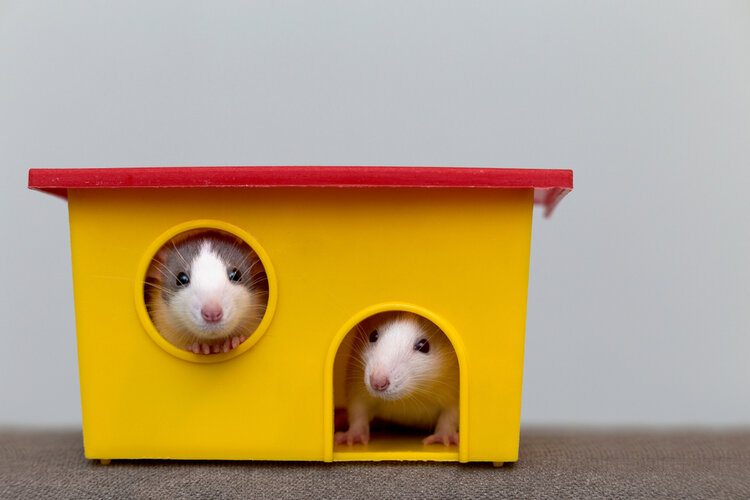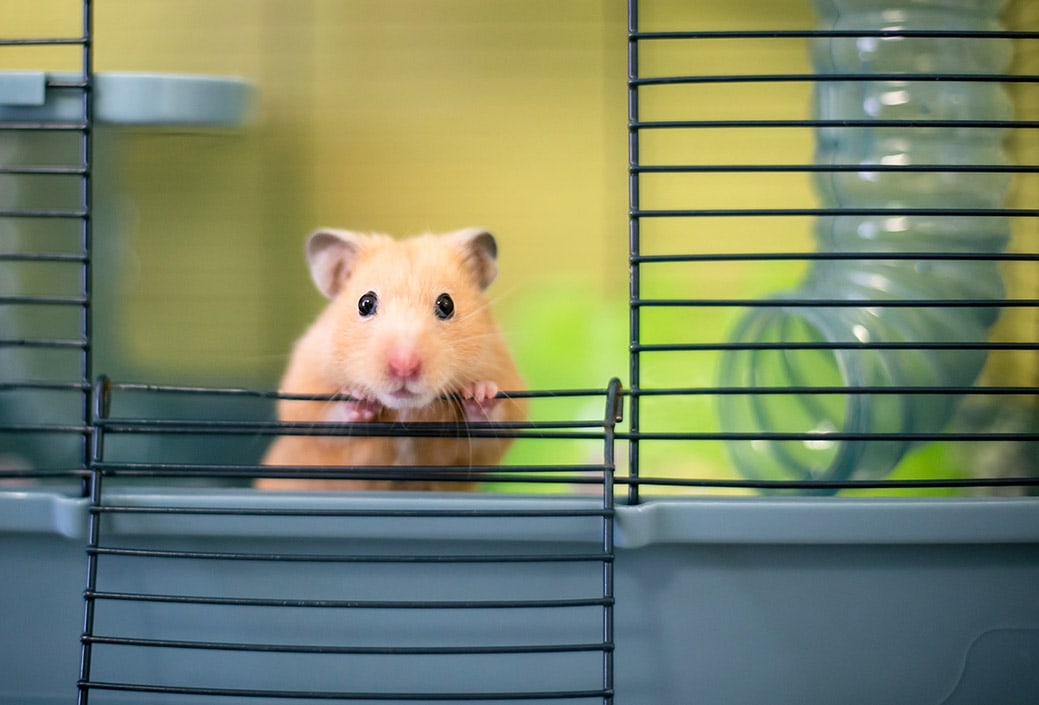
Click to Skip Ahead
Hamsters thrive when they can eat a diverse range of fresh, healthy fruits and veggies alongside their regular diet. The variety helps add variety to your pet’s life, keeping them mentally enriched and healthy. Herbs can also be a beneficial addition to your hamster’s meals. Basil can provide a great source of nutrients, is a healthy treat for your hamster, and most seem to enjoy the flavor.
What Is Basil?
Basil is an herb native to Asia, India, and Africa, and its name comes from the ancient Greek word “basilikhon,” which translates to “royal.” Today, basil is known scientifically as Ocimum basilicum, and it is grown in many locations across the globe.
Basil is a fragrant herb that comes in over 60 varieties. Sweet basil is one of the most popular and is likely the kind you are familiar with. It is a bright green plant with round, pointed leaves. However, some varieties have red or purple hues to their leaves.
Basil is packed with vitamins and minerals, and provides a great source of antioxidants. Many of these benefits are lost when basil is dried out, so it is always best to feed it to your hamster fresh.
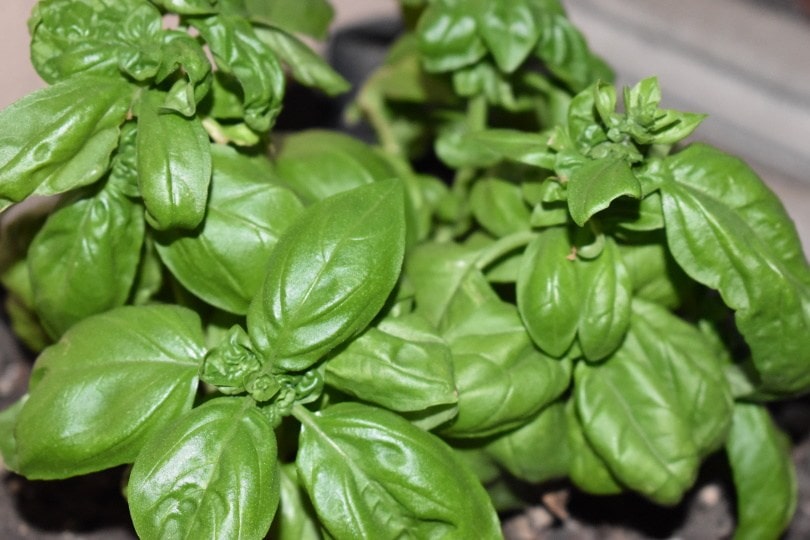
Basil Nutritional Facts
In 5 grams of basil (or 2 tablespoons), you will find the following:
Basil is also packed with vitamins and minerals, such as:
Do Hamsters Like Basil?
Most hamsters seem to find fresh basil tasty, however, each individual is different. There is no guarantee that your hamster will love basil, so it is best to introduce the herb slowly and see if your hamster likes it. If they seem reluctant to eat it, maybe basil isn’t the right herb for your pet.
Preparing Basil for Your Hamster
Always use fresh basil to get the most nutritional benefits, and if you can buy organic, this will reduce the risks of any chemicals or pesticides on the surface of the leaves. To feed fresh basil to your hamster, take 3–4 leaves and rinse them before offering them to your pet so they can munch to their heart’s content.
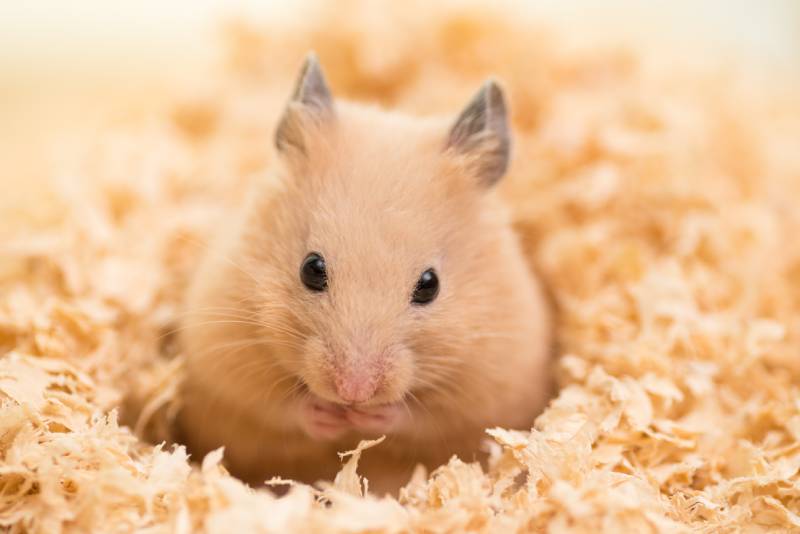
Other Herbs that You Can Feed Your Hamster
Basil is not the only herb that you can feed to your hamster. If they are not fond of basil or you simply want to branch out and try new things, consider some of the herbs below.
Parsley
Parsley is full of essential antioxidants, vitamins, and minerals. It is especially rich in vitamin K and is also a great source of the following:
Coriander
Another excellent herb for your hamster is coriander. Coriander provides significant health benefits due to its many vitamins and minerals. Like parsley, the leaves of coriander are packed with vitamin K. Coriander also offers an excellent source of the following:
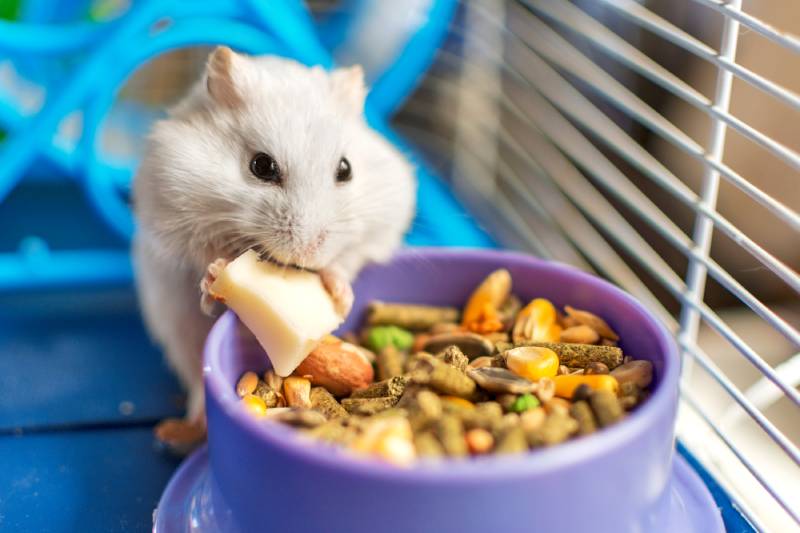
Follow the Ideal Hamster Diet
While basil and other herbs are a great addition to your hamster’s meals, they should not be the main source of your pet’s nutrients. The diet of a healthy hamster contains five primary food types.
What Fruits Can Hamsters eat?
Not all fruits are healthy for your hamster, but there is still a wide selection for you to choose from. Some of the best fruits you can feed your pet include:
If you are considering adding other fruits to your hamster’s diet, consult your vet to determine whether or not they are appropriate.
What Veggies Can Hamsters Eat?
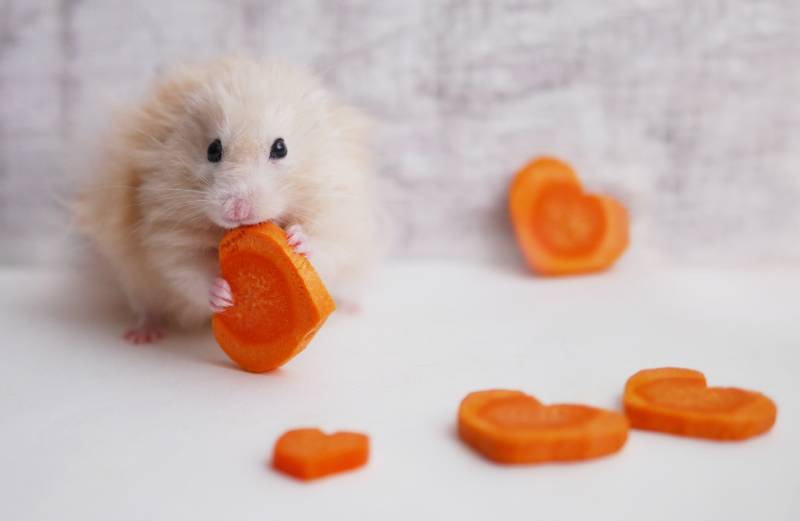
Feeding your hamster a moderate amount of veggies is a great way to provide them with essential nutrients. Excellent vegetables to give to your pet include the following:
Final Thoughts
Basil is a healthy herb to add to your hamster’s diet. It’s relatively easy to grow, but if you serve homegrown basil to your pet, ensure it does have traces of pesticide or fertilizer. When constructing a dietary plan for your pet, don’t forget that variety enriches them and provides them with a wide range of nutrients. Rotate a regular selection of herbs, veggies, and fruits into your hamster’s meals so that they can receive an exciting and well-balanced diet.
Featured Image Credit: monicore, Pixabay




